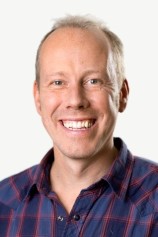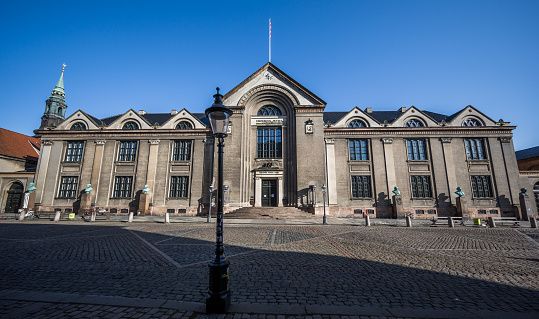
Mark de Vos
Can you please tell me a bit about your background before working at the University of Copenhagen?
I am originally from the Netherlands and my background is in cultural anthropology. After my studies, I worked for 5 years in Ghana, first at the Dutch Embassy and then for a development organisation specialising in using bamboo and rattan. During this period, I also worked in China for the same organisation and was eventually posted in India. In Ghana, I met my wife and she was my reason for moving to Denmark.
When I arrived in Denmark, it was relatively hard to find a job since I did not speak the local language and my background was quite specialised. Within a year, I became head of a cultural section in a private company and I developed and organised intercultural training. After this, I also worked for a public organisation called Work in Denmark which falls under the Ministry of Employment. My role was to try and attract international specialists to Denmark.
What is your role at the University of Copenhagen?
I started working at the University of Copenhagen 6 years ago in central HR – in an office called International Staff Mobility (ISM). My job is very varied but I would describe it as having several different roles.
Firstly, I set up the Dual Career ~ Spouse Network at the University. This was important because many international researchers working at the university have moved with their partner and there was the frequent problem that they left earlier because their partner was not able to establish him or herself in Denmark. To give you some scope of this situation, there are 9,000 employees and 5,000 researchers at our university. Over 1,800 of those staff members are non-Danes. In the Dual Career ~ Spouse Network, we have more than 500 active spouses in this programme and we support them with a range of events, workshops and other services.
Together with my colleague, we set up an IDCN chapter in Copenhagen in 2016. IDCN is a non-profit association formed through the collaboration of companies, NGOs and academic institutions with the purpose of facilitating the job search for mobile employees’ partners and providing member companies access to a turnkey pool of talent. We just became executive global board members, where we work together with other IDCN representatives to develop and improve the IDCN concept worldwide.
Another key role is that I arrange cultural training sessions for staff and new leaders about intercultural communication. The University of Copenhagen is a multicultural university and it is therefore essential that all employees are aware of cultural differences. I organise workshops where people can subscribe, but I also tailor-make sessions for departments.
My third role is that I, together with my boss, act as Bridgehead for EURAXESS. EURAXESS – Researchers in Motion is a unique pan-European initiative delivering information and support services to professional researchers. Backed by the European Union, member states and associated countries, it supports researcher mobility and career development, while enhancing scientific collaboration between Europe and the world.
I am also becoming more and more involved in the career development of young researchers. I recently joined a strategic project where we look at all the career initiatives we already have at the different institutes and finding out how we can support our PhDs and Postdocs in every possible way.
Finally, I am also involved in our universities’ presence at various international job fairs. We have a lot of smaller institutes and departments who would like to get their jobs ads out in the world but they do not have the resources to do this. It makes a lot of sense if we pull all of these together when we are trying to meet interesting international candidates.
How do you feel your role contributes to the university as a whole?
Generally, it is my role to support international researchers and their family coming to live and work in Denmark. It is therefore very important to be actively involved in their needs to ensure we offer services which directly help them.
How do you find working in this environment?
I think it is great to be part of an organisation where ground-breaking research is done which has an impact on the world and society. In my department, we are very responsive to the needs of researchers but we can also be quite flexible in our work. We can decide what tasks we do as long as we are always mindful of whether or not it will help the researchers. This flexibility is great as we are not necessarily bound by strict rules and rigid regulations.
What do you enjoy most about your role?
In my department, we really feel like we make a difference to the researchers and their families we help. The responses we get from them is always very positive and they write and call us regularly to thank us for our help. This is a very rewarding feeling.





Leave a Reply